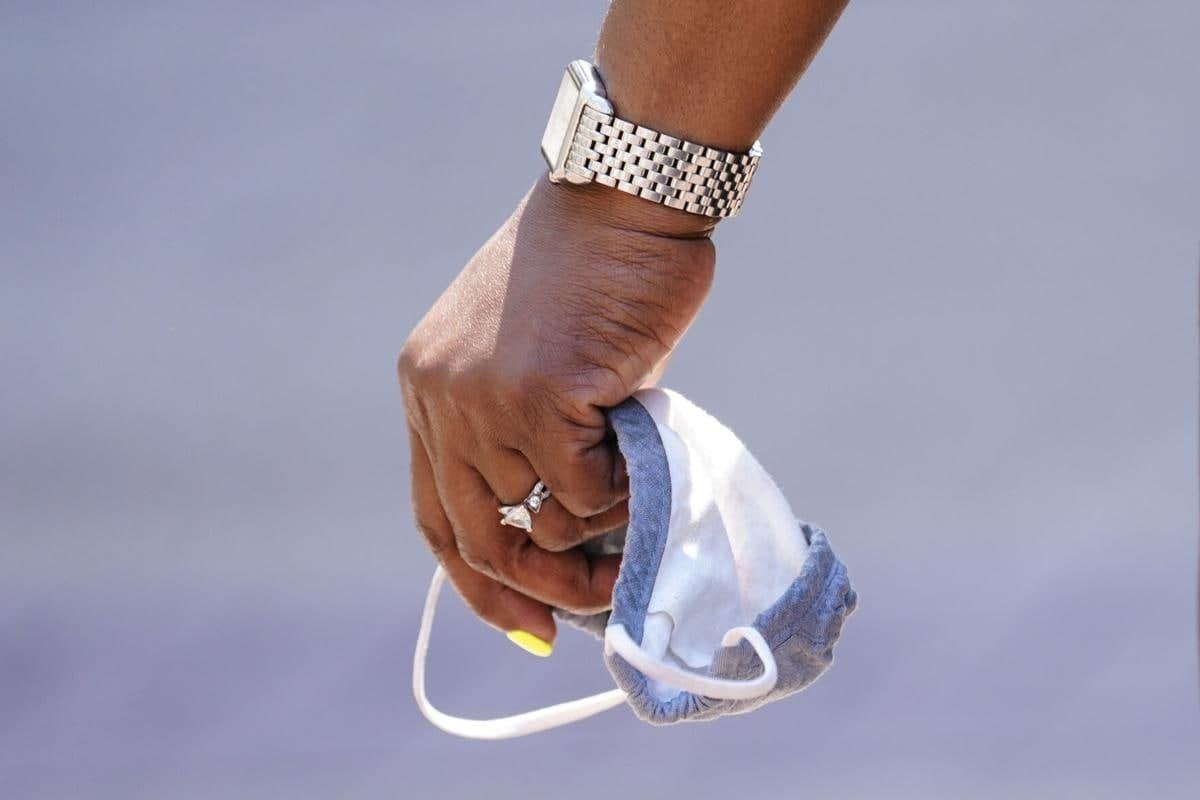WASHINGTON, July 30 (AFP) - The Delta variant of the coronavirus is as contagious as chickenpox, probably causes more severe disease than past strains, and breakthrough cases in vaccinated individuals may be as transmissible as unvaccinated cases, according to a leaked US government document.
The internal slide presentation produced by the Centers for Disease Control and Prevention (CDC) stresses that "the war has changed" as a result of Delta.
It was first reported by The Washington Post and has been verified by AFP.
CDC director Rochelle Walenksy cited data from the presentation this week to justify a return to masks for vaccinated people in high-risk areas.
One of the biggest takeaways is the finding that breakthrough infections in vaccinated people are highly contagious, with the data coming from previous studies and a new analysis of an outbreak in Provincetown, Massachusetts.
Experts rely on a number called the cycle threshold (Ct) value to indicate how much virus an infected person harbours, with lower numbers indicating higher viral load.
In Provincetown, there was "no difference in mean Ct values in vaccinated and unvaccinated cases," the slides said.
On Friday, the CDC published a preliminary report about the superspreading event, in which roughly three-quarters of people were vaccinated.
The outbreak related to Jul 4 festivities, with the latest number of people infected swelling to 900, according to local reports.
But unlike previous mass outbreaks, hospitalisations are low - only seven so far, according to news website MassLive, and so far no deaths.
"This is a key point which is part of the reason the CDC changed its guidance," Celine Gounder, an infectious diseases physician and professor at New York University, told AFP.
"It's not really so much for your own protection: as a vaccinated person if you have one of these breakthrough infections, you may have mild symptoms, you may have no symptoms, but based on what we're seeing here you could be contagious to other people."
Accordingly, the CDC has changed its guidance to say vaccinated people need to test if they are exposed to the virus even if they don't have symptoms.
Jennifer Nuzzo, an epidemiologist at Johns Hopkins University, added that a point to note about the Provincetown outbreak is that it occurred in a setting where community transmission was low - and as such, the CDC's new masking recommendation wouldn't have applied there.
"Moreover, public reporting around that outbreak investigation suggest(s) that exposures were likely at places like bars and house parties, where mask wearing would be unlikely," she told AFP.
BREAKTHROUGHS NOT AS RARE
The CDC slide set also indicates breakthrough infections are not as rare as previously thought - and at present account for "35,000 symptomatic infections per week among 162 million vaccinated Americans".
A review of findings from other countries shows that while the original SARS-CoV-2 was as contagious as the common cold, each person with Delta infects on average eight others, making it as transmissible as chickenpox but still less than measles.
Reports from Canada and Scotland also suggest it might be more severe, with higher odds of hospitalisation. In Singapore, too, it raised the odds of ICU admission and death.
Vaccine efficacy estimates vary across countries, but in its concluding slide, the CDC estimates the risk of severe disease or death is reduced 10-fold or greater in the vaccinated, while risk of infection is reduced three-fold or greater.
That is equivalent to at least 90 per cent effective against severe disease and death, and at least 67 per cent effective against infection.
Experts say that while more masking might be able to slow the spread, vaccines remain the solution to the health crisis.
America's stalling immunisation campaign received a boost Friday with the news announced by the White House that half a million people received their first shot, the highest number since Jul 1.
A little under 50 per cent of the total population is now fully vaccinated, including just over 60 per cent of adults.





